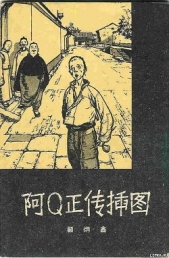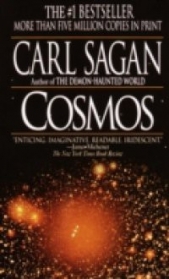Heretics of Dune

Heretics of Dune читать книгу онлайн
Frank Herbert was born in Tacoma, Washington, and educated at the University of Washington, Seattle. He worked a wide variety of jobs - including TV cameraman, radio commentator, oyster diver, jungle survival instructor, lay analyst, creative writing teacher, reporter and editor of several West Coast newspapers - before becoming a full-time writer.
In 1952, Herbert began publishing science fiction with "Looking for Something?" in Startling Stories. But his true emergence as a writer of major stature did not occur until 1965, with the publication of Dune. Dune Messiah, Children of Dune, God Emperor of Dune, Heretics of Dune, and Chapterhouse: Dune followed, completing the saga that the Chicago Tribune would call "one of the monuments of modern science fiction." Herbert is also the author of some twenty other books, including The Jesus Incident, The Dosadi Experiment, and Destination: Void. He died in 1986.
Внимание! Книга может содержать контент только для совершеннолетних. Для несовершеннолетних чтение данного контента СТРОГО ЗАПРЕЩЕНО! Если в книге присутствует наличие пропаганды ЛГБТ и другого, запрещенного контента - просьба написать на почту [email protected] для удаления материала
***
The worst potential competition for any organism can come from its own kind. The species consumes necessities. Growth is limited by that necessity which is present in the least amount. The least favorable condition controls the rate of growth. (Law of the Minimum)
The building stood back from a wide avenue behind a screen of trees and carefully tended flowering hedges. The hedges had been staggered in a maze pattern with man-high white posts to define the planted areas. No vehicle entering or leaving could do so at any speed above a slow crawl. Teg's military awareness took all of this in as the armored groundcar carried him up to the door. Field Marshal Muzzafar, the only other occupant in the rear of the car, recognized Teg's assessment and said:
"We're protected from above by a beam enfilading system." A soldier in camouflage uniform with a long lasgun on a sling over one shoulder opened the door and snapped to attention as Muzzafar emerged.
Teg followed. He recognized this place. It was one of the "safe" addresses Bene Gesserit Security had provided for him. Obviously, the Sisterhood's information was out of date. Recently out of date, though, because Muzzafar gave no indication that Teg might know this place.
As they crossed to the door, Teg noted that another protective system he had seen on his first tour of Ysai remained intact. It was a barely noticeable difference in the posts along the trees-and-hedges barriers. Those posts were scanlyzers operated from a room somewhere in the building. Their diamond-shaped connectors "read" the area between them and the building. At the gentle push of a button in the watchers' room, the scanlyzers would make small chunks of meat out of any living flesh crossing their fields.
At the door, Muzzafar paused and looked at Teg. "The Honored Matre you are about to meet is the most powerful of all who have come here. She does not tolerate anything but complete obedience."
"I take it that you are warning me."
"I thought you would understand. Call her Honored Matre. Nothing else. In we go. I've taken the liberty of having a new uniform made for you."
The room where Muzzafar ushered him was one Teg had not seen on his previous visit. Small and crammed with ticking black-paneled boxes, it left little room for the two of them. A single yellow glowglobe at the ceiling illuminated the place. Muzzafar crowded himself into a corner while Teg got out of the grimed and wrinkled singlesuit he had worn since the no-globe.
"Sorry I can't offer you a bath as well," Muzzafar said. "But we must not delay. She gets impatient."
A different personality came over Teg with the uniform. It was a familiar black garment, even to the starbursts at the collar. So he was to appear before this Honored Matre as the Sisterhood's Bashar. Interesting. He was once more completely the Bashar, not that this powerful sense of identity had ever left him. The uniform completed it and announced it, though. In this garment there was no need to emphasize in any other way precisely who he was.
"That's better," Muzzafar said as he led Teg out into the entry hallway and through a door Teg remembered. Yes, this was where he had met the "safe" contacts. He had recognized the room's function then and nothing appeared to have changed it. Rows of microscopic comeyes lined the intersection of ceiling and walls, disguised as silver guide strips for the hovering glowglobes.
The one who is watched does not see, Teg thought. And the Watchers have a billion eyes.
His doubled vision told him there was danger here but nothing immediately violent.
This room, about five meters long and four wide, was a place for doing very high-level business. The merchandise would never be an actual exposure of money. People here would see only portable equivalents of whatever passed for currency - melange, perhaps, or milky soostones about the size of an eyeball, perfectly round, at once glossy and soft in appearance but radiant with rainbow changes directed by whatever light fell on them or whatever flesh they touched. This was a place where a danikin of melange or a small fold-pouch of soostones would be accepted as a natural occurrence. The price of a planet could be exchanged here with only a nod, an eyeblink or a low-voiced murmur. No wallets of currency would ever be produced here. The closest thing might be a thin case of translux out of whose poison-guarded interior would come thinner sheets of ridulian crystal with very large numbers inscribed on them by unforgeable dataprint.
"This is a bank," Teg said.
"What?" Muzzafar had been staring at the closed door in the opposite wall. "Oh, yes. She'll be along presently."
"She is watching us now, of course."
Muzzafar did not answer but he looked gloomy.
Teg glanced around him. Had anything been changed since his previous visit? He saw no significant alterations. He wondered if shrines such as this one had undergone much change at all over the eons. There was a dewcarpet on the floor as soft as brantdown and as white as the underbelly of a fur whale. It shimmered with a false sense of wetness that only the eye detected. A bare foot (not that this place had ever seen a bare foot) would feel caressing dryness.
There was a narrow table about two meters long almost in the center of the room. The top was at least twenty millimeters thick. Teg guessed it was Danian jacaranda. The deep brown surface had been polished to a sheen that drank the vision and revealed far underneath veins like river currents. There were only four admiral's chairs around the table, chairs crafted by a master artisan from the same wood as the table, cushioned on seat and back with lyrleather of the exact tone of the polished wood.
Only four chairs. More would have been an overstatement. He had not tried one of the chairs before and he did not seat himself now, but he knew what his flesh would find there - comfort almost up to the level of a despised chairdog. Not quite at that degree of softness and conformity to bodily shape, of course. Too much comfort could lure the sitter into relaxation. This room and its furnishings said: "Be comfortable here but remain alert."
You not only had to have your wits about you in this place but also a great power of violence behind you, Teg thought. He had summed it up that way before and his opinion had not changed.
There were no windows but the ones he had seen from the outside had danced with lines of light-energy barriers to repel intruders and prevent escape. Such barriers brought their own dangers, Teg knew, but the implications were important. Just keeping the energy flow in them would feed a large city for the lifetime of its longest-lived inhabitant.
There was nothing casual about this display of wealth.
The door that Muzzafar watched opened with a gentle click.
Danger!
A woman in a shimmering golden robe swept into the room. Lines of red-orange danced in the fabric.
She is old!
Teg had not expected her to be this ancient. Her face was a wrinkled mask. The eyes were deeply set green ice. Her nose was an elongated beak whose shadow touched thin lips and repeated the sharp angle of the chin. A black skullcap almost covered her gray hair.
Muzzafar bowed.
"Leave us," she said.
He left without a word, going out through the door by which she had entered. When the door closed behind him, Teg said, "Honored Matre."
"So you recognize this as a bank." Her voice carried only a slight trembling.
"Of course."
"There are always means of transferring large sums or selling power," she said. "I do not speak of the power that runs factories but of the power that runs people."
"And that usually passes under the strange names of government or society or civilization," Teg said.






















